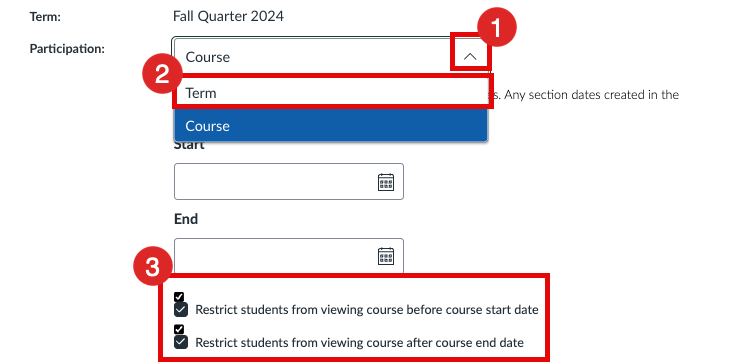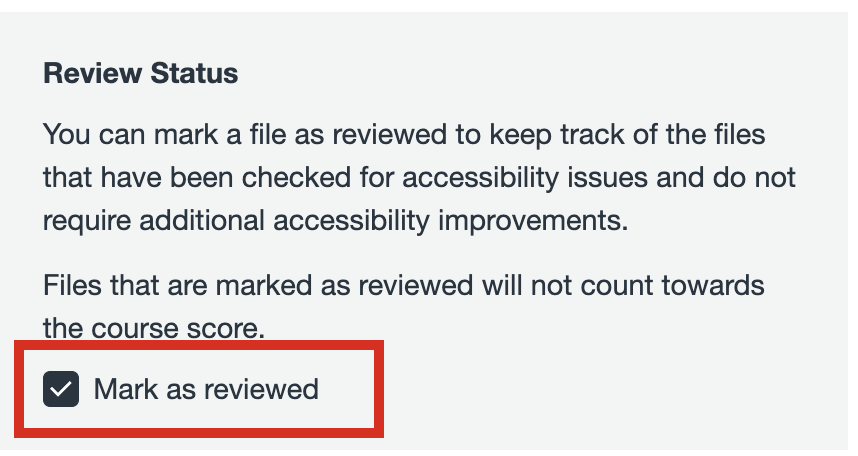Accessible Learning

Cal Poly is committed to creating a culture of access for an inclusive learning environment. This means ensuring that all campus electronic and information technology resources, including course materials, are fully accessible to all students, including students with disabilities.
The CTLT provides workshops and resources to help faculty create accessible course content, including electronic documents, videos, and Canvas content. Research shows that all learners benefit from educational materials that are well-designed with accessibility in mind.
ALERT: Deadline for Course Content Accessibility is April 24, 2026All digital course materials must be fully accessible to all students by April 24, 2026, to comply with Title II of the ADA. The mandate includes all course materials in Canvas to ensure that every student has equitable access to learning as well as to avoid potential legal consequences. Visit Accessible Learning for details and available support resources.
|
Faculty Associates for Accessible Course Materials (Winter 2026)
Policy & Mandate Overview
The U.S. Department of Justice requires all public entities (including CSU campuses) to make their digital content and instructional materials accessible to people with disabilities under Title II of the ADA. The new federal accessibility regulation (requiring WCAG 2.1 AA standards) takes effect for large public entities like CSU on April 24, 2026. CSU campuses are currently updating their instructional materials accessibility policies (EO 1111, Code Memo AA-2013-03) and must demonstrate progress toward full compliance.
For Cal Poly, this means that all instructional materials—including Canvas content, Word documents, PDFs, images, videos, websites, and required software—must be created or updated to be accessible. This work includes policies, training, course review, and the use of accessible technologies now, not just by the 2026 deadline.
Making course materials accessible isn’t just a legal requirement—it’s central to Cal Poly’s commitment to equity and student success. CTLT is committed to supporting Cal Poly's adherence to laws and policies by providing support and resources for accessible course materials.
How is Cal Poly Responding?
Cal Poly has responded by expanding accessibility support services and adopting new software tools, including:
- TidyUp: This is a software tool embedded in Canvas (links are in every course section navigation menu) that helps faculty efficiently remove outdated files no longer in use in Canvas courses -- and that likely are worsening accessibility scores.
- Access4All Accessibility Report: This new software tool is embedded in Canvas and identifies accessibility issues in course materials (replaces Ally). It also allows you to fix content within Canvas - even PDF (save as Page, HTML).
- PDF Remediation Service: The MIDAS service ("Making Instructional Documents Accessible to Students") was launched in Spring 2025 to remediate PDFs that are currently used in courses and are too complex for faculty to fix. However, MIDAS is prioritizing courses with DRC students with accommodations and then high-enrollment GE courses.
- CTLT Accessibility Workshops and Resources: The CTLT continues to offer accessibility skills workshops and online, self-paced tutorials for faculty to learn to create course materials that are accessible (instead of having to fix them afterward). Most workshops come with stipends.
The CTLT is also providing colleges and departments with regular status reports each quarter summarizing accessibility scores and updates on the most frequent accessibility issues. The "Access4All" institutional dashboard provides detailed data on accessibility from the university level down to individual course sections, essential to track progress and identify areas needing attention and support.
Quick Start Checklist
|
|
TidyUp Unused ItemsRemove unused files and course content in Canvas with TidyUp. The tool scans your course for unlinked or outdated materials so you can safely remove them and improve your accessibility score.
|
|
|
Scan Courses with Access4AllUse the Canvas plugin Access4All (CidiLab’s UDOIT) to scan your course for accessibility issues. This tool gives you a scorecard, shows the most important issues, and guides you in fixing them so you can work toward a 100% accessibility score.
|
|
|
Fix Canvas ContentWhen creating pages, assignments, quizzes, or announcements in Canvas, use the built-in Accessibility Checker. It scans your content for common issues (like missing alt text, skipped headings, or poor color contrast) and gives you prompts to fix them right away. Watch Demo Video.
|
|
|
Fix or Convert PDFsIf you have the original file, use the program’s built-in Accessibility Checker to fix issues, then re-save it as a PDF. If you don’t have the source file, no longer have access to it, or the materials are from the library, refer to this resource.
|
|
|
Remediate Presentations and DocumentsUse Microsoft’s built-in Accessibility Checker to make your Word documents and PowerPoint slides accessible. You can also follow step-by-step guides here.
|
|
|
Caption All VideosUpload your videos and recordings to OneDrive (or another supported platform) and enable captions so they are ADA-compliant. For guidance, see Video Creation and Captioning.
|
|
|
Add Alt Text to ImagesAdd alternative text (alt text) to all images in Canvas using Image Options. Tools like Access4All and built-in accessibility checkers will flag images missing descriptions.
|
|
|
Rescan Your Course After ChangesAfter making updates, run a "Full Rescan" with Access4All in Canvas to check your course again. This ensures all changes are captured and your accessibility score moves closer to 100%. Refer to this guide.
|
Workshops, Guides, Self-Enroll Courses, & Resources
Check our Accessible Learning Resource Hub:
Frequently Asked Questions
What Access4All (UDOIT) score is required to meet compliance?
100%
Do I have to convert all my PDFs to Canvas Pages?
No. If you have the original file, please fix the file in the program it was created within.
Can I provide an accessible Canvas Page and an inaccessible PDF (print only)?
Yes, as long as there is a version that is accessible.
Are PDFs themselves inaccessible?
No, it isn't the PDF file type that is inaccessible; it is the way the file is made that makes it inaccessible. As long as the original (doc) was made accessible, the PDF will also be accessible. Here is the self-enroll course.
What are the basic requirements for compliance? Who is going to be reviewing the canvas pages for compliance?
Access4All provides the requirements and tips to fix. The Access4All Scorecard data, which you can see in your own course, is sent to Deans and Chairs.
Are scanned textbooks/chapters saved as PDFs accessible?
No. An image of text is not accessible. Due to copyright concerns, MIDAS is not remediating these files. We recommend you work with the publisher/bookstore and/or library to find accessible options.
How can I prevent students from accessing my old courses?
In the Course > Settings, choose Term and Restrict viewing after.
When can I mark as reviewed?
Only if there aren't any accessibility requirements for the file, but it is not a necessary task, and it will not improve the score.
NOTE: It is not acceptable to use this tool to improve your course score when the item is not accessible. Data is available on which courses and items used this feature, and it is manually reviewed to confirm accuracy.
When can I mark as resolved?
Only if you have provided a Canvas Page or HTML file for the item, so there is an accessible option.
NOTE: It is not acceptable to use this tool to improve your course score when the item is not accessible. Data is available on which courses and items used this feature, and it is manually reviewed to confirm accuracy.
I made changes to my content/files, but I don't see an improvement in the scorecard.
Please review the Using Access4All page and perform a Full Rescan.
If my course materials are not in Canvas, do they still need to be accessible?
Yes, all content available to students must be accessible.
When is an image decorative?
An image is decorative when it doesn't add to the information on the page. For example, artwork used to separate topics, or a photo of someone on the phone when discussing communication skills, may be valuable for their visual appeal but may not need to be read by screen readers.
NOTE: Do not just mark all images decorative to improve course scores.
Contact Us
If you have additional questions about making instructional materials accessible:
-
Please email canvassupport@calpoly.edu for any Canvas-related (Canvas, Access4All, TidyUp, Video Captions, PowerPoint, or Word accessibility) questions.
-
Please email access4all@calpoly.edu for Canvas course accessibility questions.
-
Contact the CTLT's MIDAS (Making Instructional Documents Accessible to Students) team via email cpmidas@calpoly.edu. We are currently working on high-enrollment GE courses and courses that the Disability Resource Center students are taking for Spring 2026.







